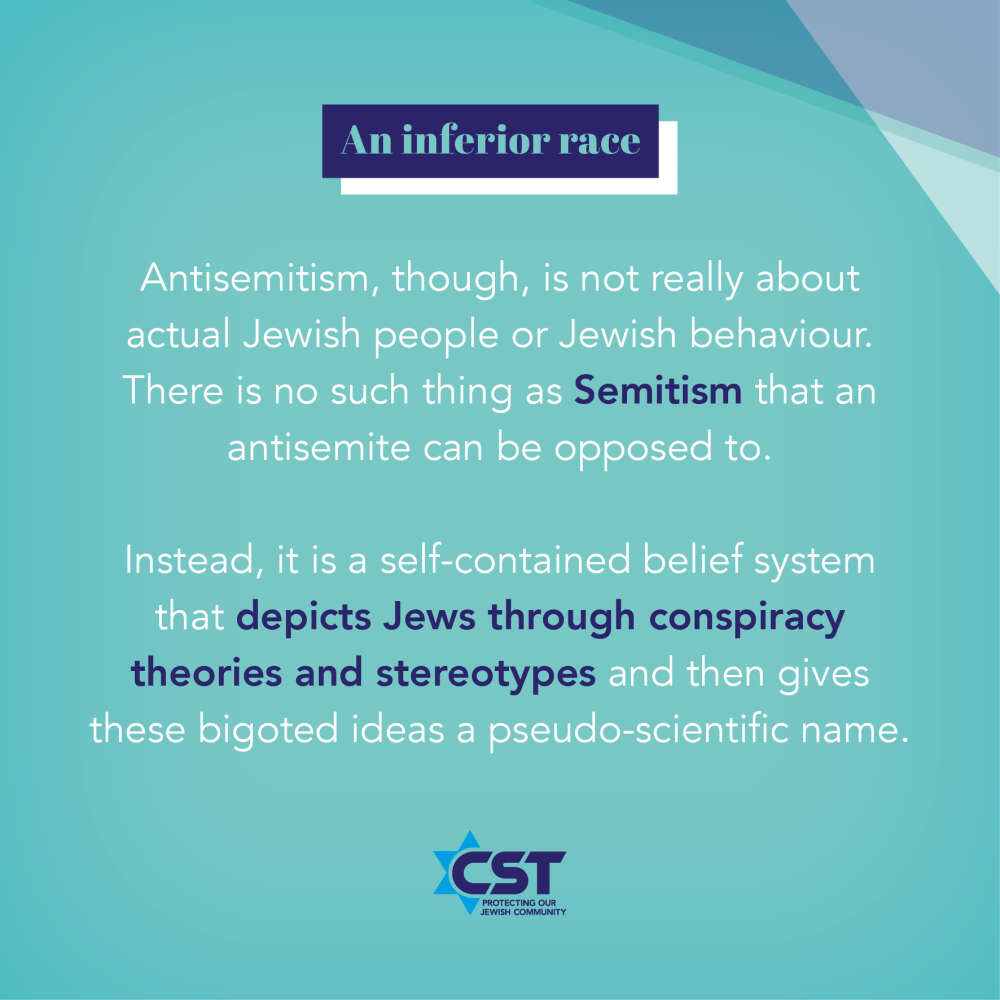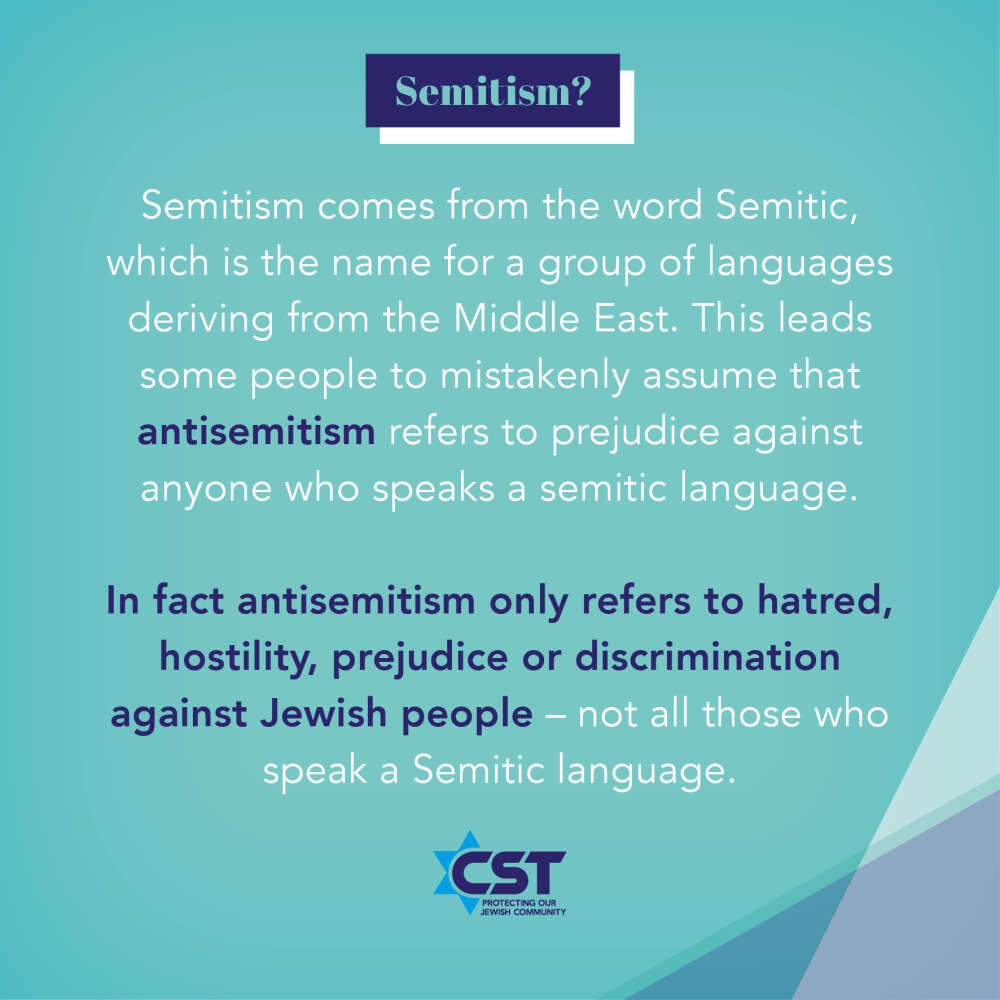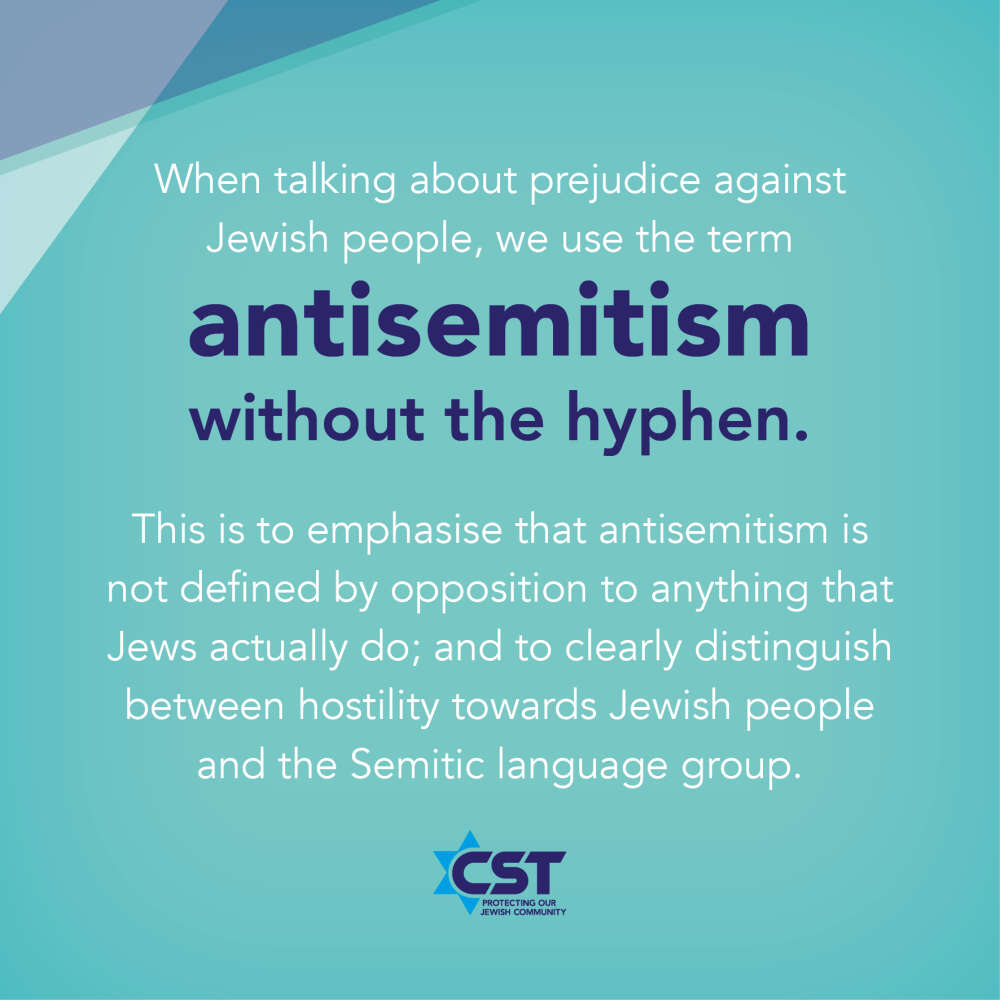CST Blog
Antisemitism vs. Anti-Semitism: why we don't include a hyphen
22 April 2021

What does it mean to be ‘anti-‘ anything? Usually, it seems to signify opposition to something definable, be it physical, conceptual or both. Ordinarily, it is quite self-explanatory. Whether somebody is anti-racism, anti-vaccination or anti-wallpaper, we immediately grasp these ideas because we can conceive of what racism, vaccination and wallpaper are. It also suggests that an inverse exists: someone can be pro-racism (as abhorrent as that is), pro-vaccination or pro-wallpaper.
The term ‘anti-Semitism’, when hyphenated, implies that there is such a thing as ‘Semitism’ around which various viewpoints can pivot. It implies that ‘pro-Semitism’ also holds meaning as a position that can be held. It implies that ‘Semitism’ alone encompasses any number of facets of Jewish life and identity. This is simply not the case.
Antisemitism is a self-contained worldview, where Jews are seen through a prism of stereotypes, conspiracy theories and outright hatred. It is a standalone belief system that neither shifts nor responds in relation to actual Jewish people or behaviour. It is a prejudice that thrives independent of its target.

‘Anti-Semitism’, in this hyphenated form, was coined in the nineteenth century by anti-Jewish propagandist, Wilhelm Marr. He manipulated the word ‘Semitic’, which refers to a group of languages (including Hebrew and Arabic) that emanate from the Middle East, to lend a scientific sheen to his racial hostility towards Jews.
The hyphen legitimises the idea that there is scientific basis for Jew-hate – that there is a Jewish ‘Semitism’ to take a stance against – and risks confusing discrimination against Jews with bigotry towards those who speak a Semitic language. That is why we spell antisemitism without the hyphen, and that is why we ask you to do so as well.
Read More

Love since 7 October
14 February 2025

Antisemitic Incidents Report 2024
12 February 2025

The Fall of Assad and the Zionist “Evil Plan”
8 January 2025


